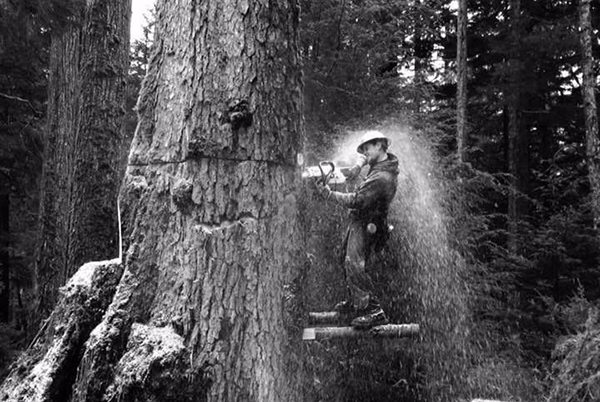Home »

Time for different approach to forestry in B.C.
Op-Ed Commentary
As I watch the snow-line creep down the ridges into town, I guess it’s safe to say summer is over and now would be a good time to reflect on the horrific fire season we just endured and – sad to say – deserved.
I don’t say “deserved” lightly and I know many will disagree, but please hear me out because if we don’t change our ways it’s going to get worse in the future.
For starters, we seldom practice “forestry” in B.C. We practice industrial logging with small pieces of forestry thrown in, and now in an era of global warming, it’s coming back to bite us in the butt, which is exactly what we deserve because we could have done better.
What’s so bad about industrial forestry? Let me tell you. For most of the last 100 years, we have practiced a particularly brutal form of industrial forestry in the province where we have clear-cut our old-growth forests right to the ground. Down to mineral soil in fact and liquidated the rich, green forest that stood before in order to convert it to forest “plantations” beloved by industrial foresters because it’s the quickest way of supplying “fibre” to industry.
That’s right, fibre. They don’t even call them “trees” anymore and the UBC School of Forestry has been churning out industrial foresters that think like this for the better part of 100 years and the landscape of B.C. has paid the price in many ways including the monster fires that have become the norm in recent years.
Yes, I can hear the howls of the foresters already. They’ll condemn any criticism. Deny the evidence. Say forest practices have improved, which is partially true, but so much more improvement is needed. You be the judge. Take a close look at all the denuded slopes and the piles of waste wood left behind. Consider all the mills that have closed, the jobs that have been lost and the rash of announcements this year by B.C. chief forester Diane Nicholls of more reductions to the Allowable Annual Cut over the entire province. And now the fires; which are becoming more destructive almost every year. It’s a sad situation and clear-cutting only makes the situation worse.
What these massive, scorched-earth clearings do is fragment the standing forest into isolated islands of trees left behind, breaking up the continuity of the original forest canopy. This results in less shade and drier soil conditions, which makes it easier for fires to start in the fragmented and degraded forests left behind as we saw so many times this summer. Throw in lightning, which happens every summer as well as abandoned campfires and carelessly discarded cigarettes, which also happens every summer and you have a recipe for the fierce fires this year that burnt 900,000 hectares, destroyed hundreds of houses and saw close to 50,000 people evacuated from their homes in the worst forest fire season on record.
It was a sad situation. In fact, a tragic situation but it wouldn’t have been nearly so severe if we harvested our forests in a more sustainable manner.
Instead of just liquidating the forest the way we do now, trees can be harvested selectively in stages over a longer time period so when logging is completed a well-spaced and still vigorous forest is left behind. Logging like this means logs will still go to the mills, albeit fewer of them, but a viable forest will be left behind for wildlife, water retention, oxygen production and carbon reduction for the people of B.C. who own 94% of the province’s Crown forest land where companies are permitted to harvest trees.
Are the taxpayers getting a fair deal out of this system? It certainly doesn’t look that way when mills are closing, forest workers are being laid off and more forests are being consumed by wildfires almost every year. Surely there was a message in all that smoke that saw so many of us coughing and choking this summer?
If we don’t clean up how we practice forestry in B.C. the searing clouds of smoke this summer will only be a prelude of worse summers to come.
– Gerry Warner is a retired journalist who has spent as much time as he could in the forests of B.C. and elsewhere.








